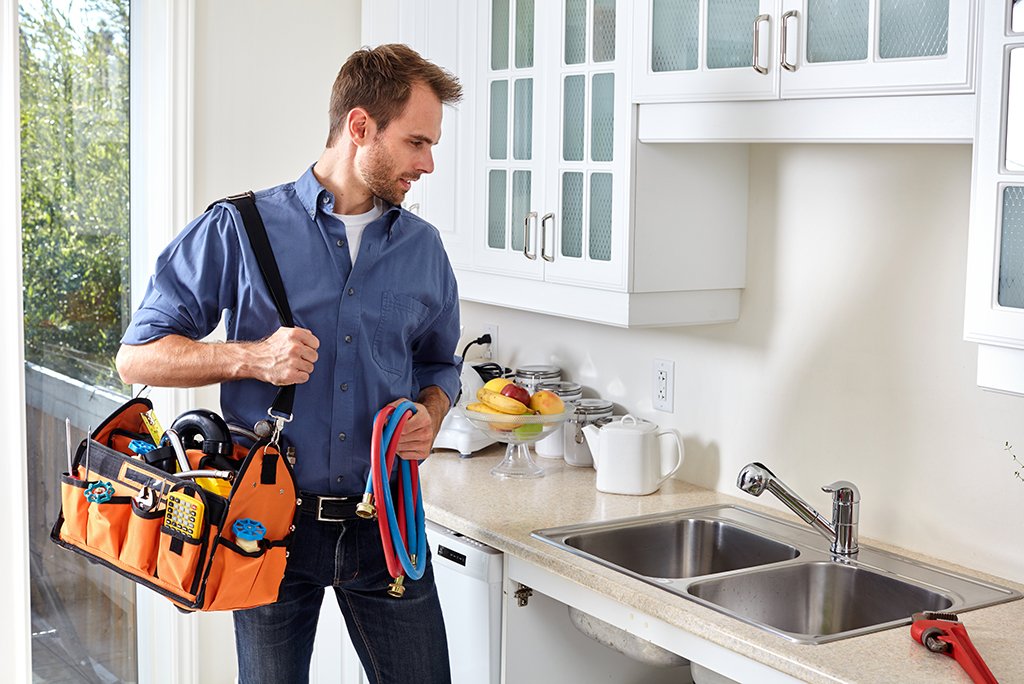What is the Difference Between a Handyman and a Contractor?
Handyman vs. Contractor – What is the Difference?
At first glance, a handyman and a contractor seem similar, and in many ways they are. But handymen differ from contractors in important ways. The most notable is that contractors, with their greater amount of specialized knowledge and experience, can take on larger jobs than a handyman can.
Both handymen and contractors have their purposes and play an important role in home improvement and repair. Understanding the difference between the two helps you make the right decision when you have something you'd like to change or repair in your own home.
Today, we'll discuss the major differences between a handyman and a contractor, and help you better understand which person is right for each type of job. You'll learn about these things and more as you read through the following sections:
What Does a Handyman Do?
A handyman performs home maintenance and improvement tasks that do not require specialization. Handymen tend to be generalists who can do anything from repairing a gutter to installing a sink. They tend to be more affordable than specialists and general contractors, though there are certain types of work they are not legally allowed to perform that a contractor can.
Here’s a list of some of the tasks that a handyman can perform at your home:
Small furniture assembly
Garbage disposal installation
Leaf clean-up
Appliance installation
Flower planting
Mulching
Brush removal
Pet door installation
Gutter repair
Water filter installation
Power bridge installation
Child-proofing
Door installation
Door repair
Furniture assembly
Patio & deck power washing
Driveway power washing
Weather stripping
Window caulking
Shutter installation
Tree trimming
Sink installation
AC filter replacement
Light bulb replacement
Bike rack/hook installation
HVAC filter replacement
Light switch replacement
Outlet replacement
Peep hole Installation
Ceiling fan replacement
Faucet replacement
Mounting mailbox
Lock replacement
Smoke/CO2 detector replacement
Smart thermostat installation
Toilet flush kit repair
Mirror hanging
Shelf installation
Doorbell replacement
Smart doorbell installation
TV mounting
Gutter cleaning
Art hanging
Window treatment installation
Decorative hardware installation
For more information about what tasks a handyman can perform, visit our handyman services page.
What Does a General Contractor Do?
Like handymen, general contractors perform a wide variety of services. However, the license that general contractors hold allows them to perform certain tasks that a handyman cannot. For this reason, a general contractor is typically better for large projects like a home remodel or a home addition.
Here are a few examples of the tasks that a general contractor performs:
Building a home addition
Demolition tasks
Home remodel
Addition of cosmetic elements (e.g., a deck or concrete patio)
Pour new concrete
How to Know if You Need a Handyman or a Contractor
You can determine whether you need a handyman or a contractor based on one simple factor — the potential of the task to cause harm. For example, a handyman can repair a gutter, install a sink, mount a TV to a wall and replace a door because none of these tasks would cause significant risk to the homeowner if performed incorrectly.
A contractor performs work that absolutely must be done correctly for safety purposes. For example, a general contractor could build an addition onto your home or break down walls to create a new floor plan. If these tasks are done incorrectly, it could pose significant danger to anyone living in the home where the work was performed.
In short, if you need someone to come and do something simple that doesn’t involve major electrical or plumbing work, and doesn’t affect the structural integrity of your home, you probably want a handyman. If you need to perform serious construction work or significantly modify a portion of your home, you should hire a general contractor.
What Type of Work Can a Handyman Do Legally?
As we mentioned, handymen can do any work that does not pose significant risk to the homeowner if performed incorrectly. Some examples of work that a handyman can do include:
Gutter repair
Sink installation
Garbage disposal installation
Window treatment installation
Brush clearing
Furniture assembly
In some states, handymen can also perform minor electrical and plumbing work, but you should check your local regulations surrounding handymen to ensure that is legal in your area.
Why American Home Protect Home Warranty Includes Handyman Services
At American Home Protect, we understand that your home is more than just the systems and appliances covered under our warranty. To recognize that, we’ve expanded our service offerings to include handyman services. Even if you never need us to replace or repair an appliance, you can still take advantage of these services to help you improve your home.
Read more about the benefits of hiring a handyman or get a free quote today!
FAQs
Should a handyman be licensed and insured?
A handyman does not need to be licensed or insured, but you should ask around for handymen that are. At the very least, a handyman should agree in a written contract that if any of their work falls short of a reasonable expectation, they will return at no cost to fix the error. All of the handymen you hire through our home warranty are guaranteed to complete your job or return to fix it.
Can a handyman do electrical work?
In some states it is legal for handymen to perform minor electrical work such as fixing a light switch or installing a ceiling fan. Make sure to check your state’s regulations on handymen to confirm whether or not they can perform electrical work in your area.
Can a handyman do plumbing work?
In certain states it is legal for handymen to perform smaller plumbing tasks such as fixing a leaky faucet or installing a sink. Check your state’s handymen regulations to ensure that they can perform plumbing work in your area.

